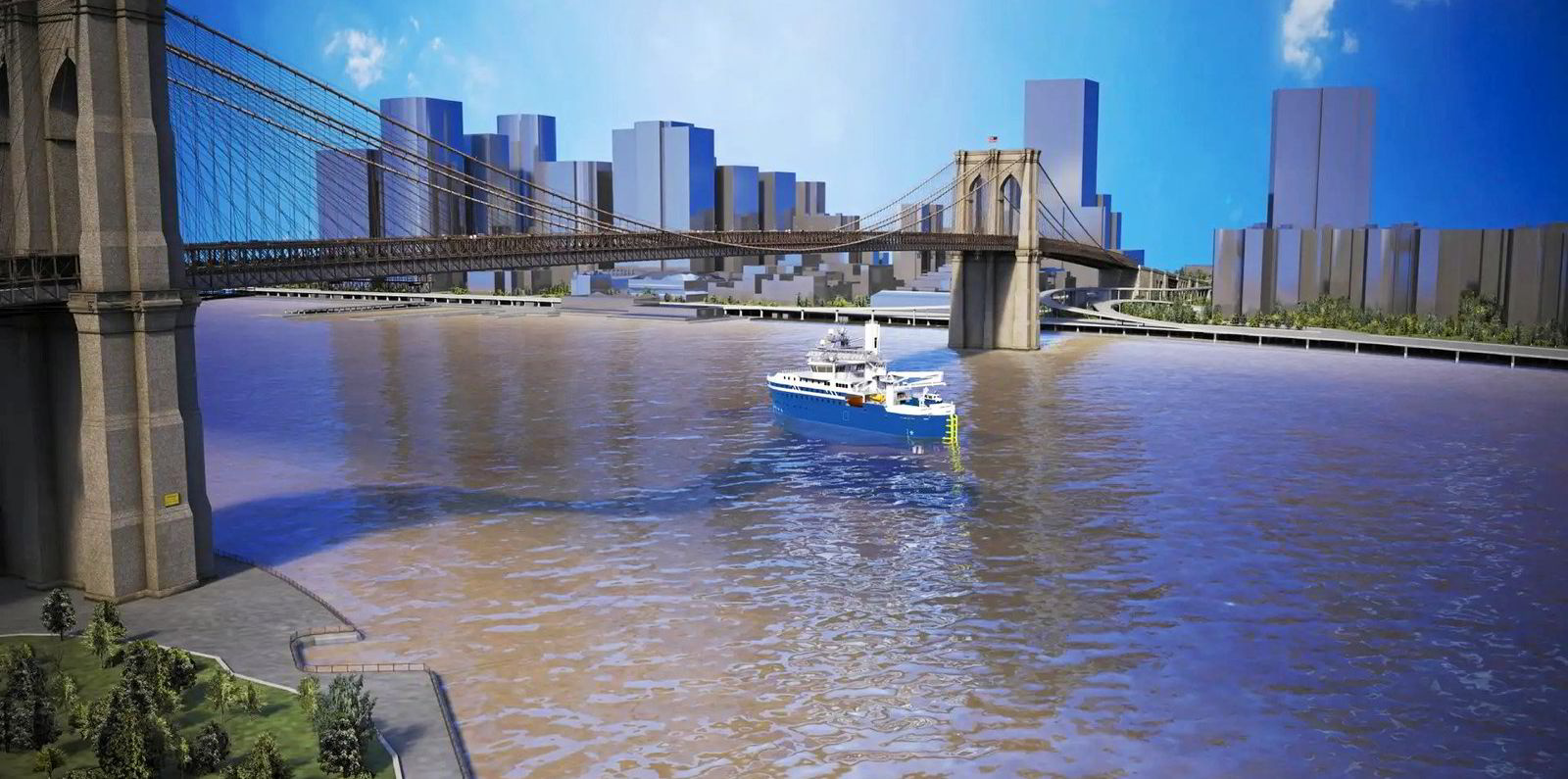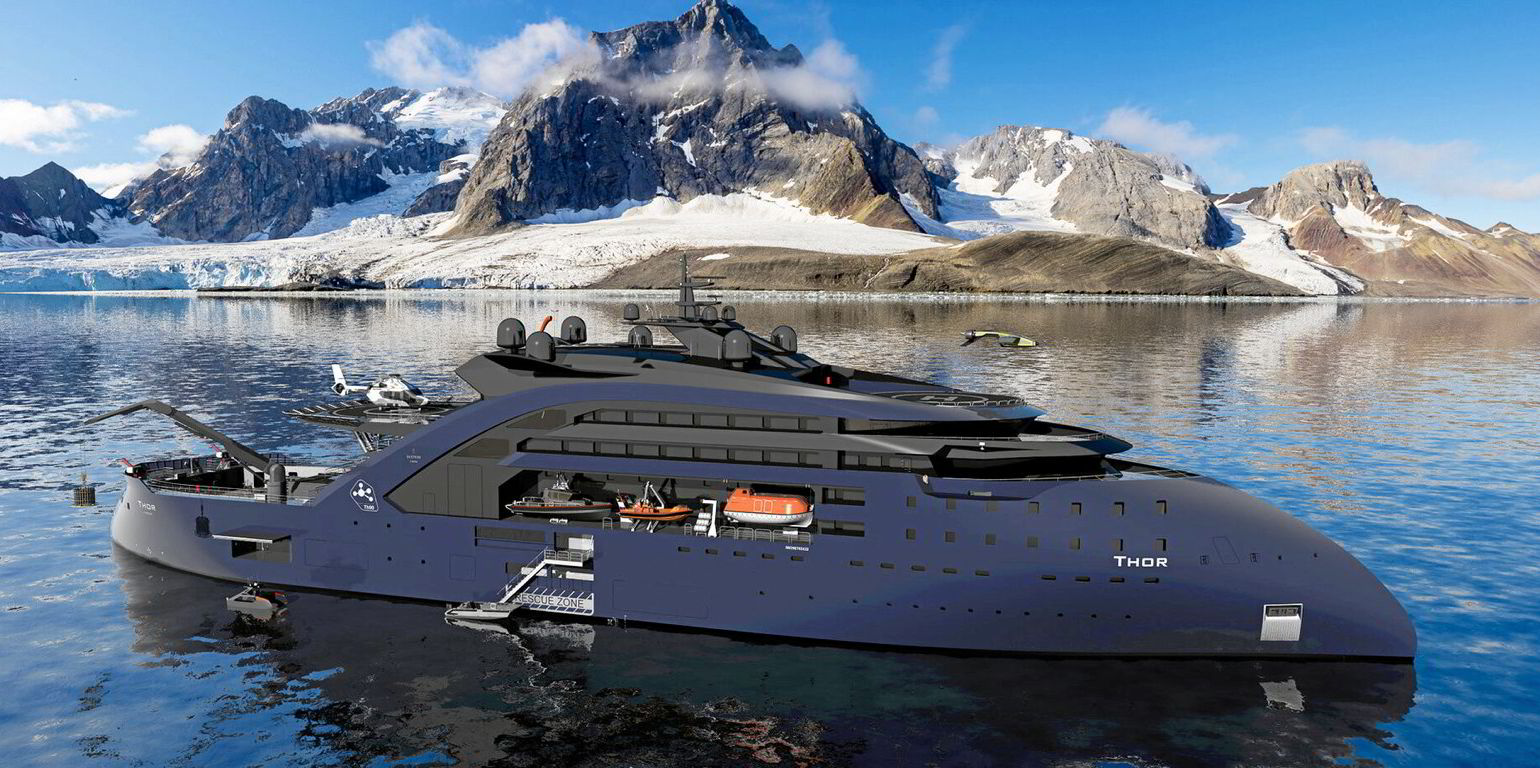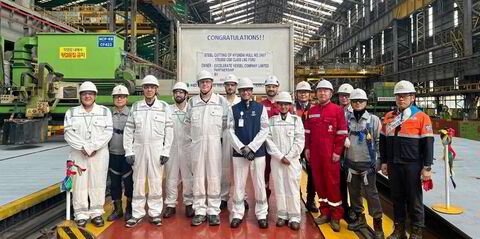As the US works to dot its waters with offshore wind projects, several orders for domestically built small crew transfer vessels have been announced.
But the market is still waiting for orders at US yards for larger service operation vessels (SOVs), which could become the workhorse of the offshore wind fleet in waters protected by the Jones Act.
So far, only Edison Chouest Offshore has ordered two Jones Act SOVs. Clarksons’ Shipping Intelligence Network shows that the Louisiana company has booked one battery hybrid vessel at its in-house shipyard for Equinor and BP-controlled Empire Offshore Wind after ordering another for a contract with Orsted and Eversource.

What is holding up those orders is a reluctance by shipowners to order vessels for the spot market. Instead, they want a long-term contract that would allow them to procure financing, Braemar renewables shipbroker Justin Hubbard said.

SOVs provide accommodation on wind farms, supply equipment using cranes and assist with service and repair work. Some are commissioning SOVs, or constructive support offshore vessels (CSOVs), which serve wind-farm construction but can stay on through operation.
“While there has been a lot of action in the US market over the last two years and we have over 40 GW of offshore wind in the pipeline, only a small percentage of these wind areas are in the construction phases,” Hubbard told TradeWinds.
Developers are also exploring whether they want a purpose-built SOV, or whether other units can be repurposed to do the job, which would need big investment to convert a vessel from the oilfield service fleet.
Hubbard said he believes a newbuilding order will be announced soon. Why tenders for Jones Act SOV orders have not turned into orders yet is a matter of financing.
“We are all aware that a newbuild requires significant capital investment, but we need to dig into why it is so challenging to raise the capital for a newbuild,” he said.
Meanwhile, the star has faded for Jones Act-qualified wind turbine installation vessels (WTIVs), after Eneti pulled out of its plan to build one earlier this year.
Since then, Maersk Supply Service has ordered a WTIV in Singapore, due for delivery in 2025, that has already scored two charter contracts in US waters.
Foreign-built WTIVs can operate in US waters, but only if Jones Act feeder vessels, provided by US barge owner Kirby in Maersk’s case, do the work subject to the cabotage law.




